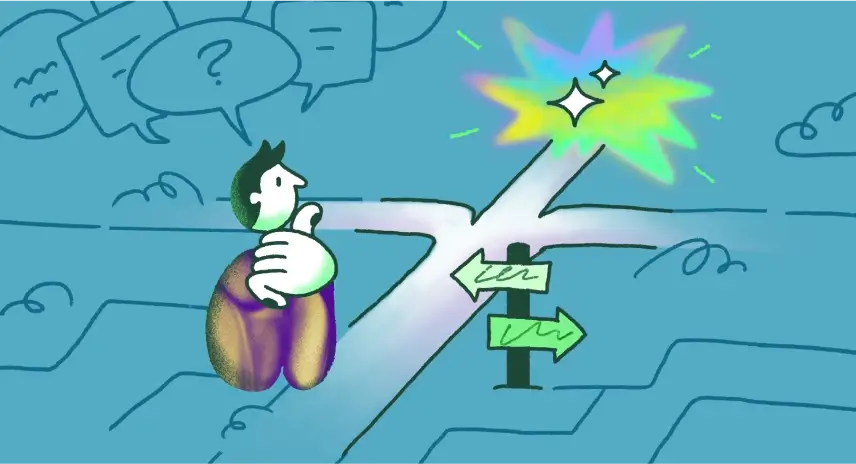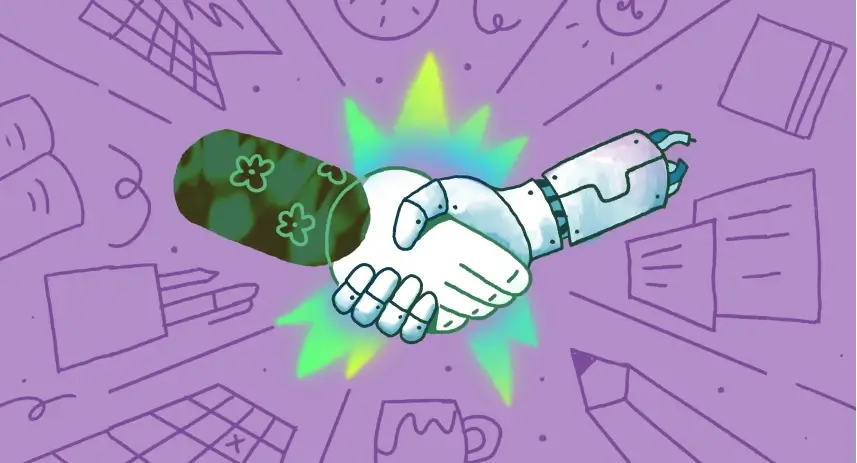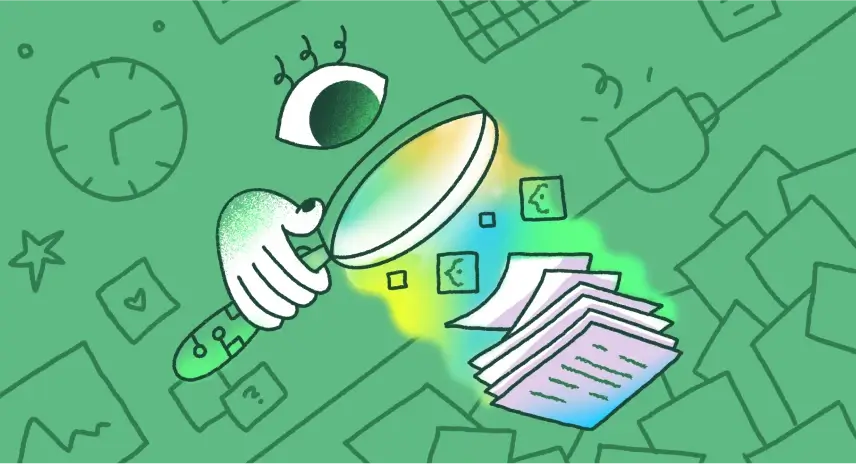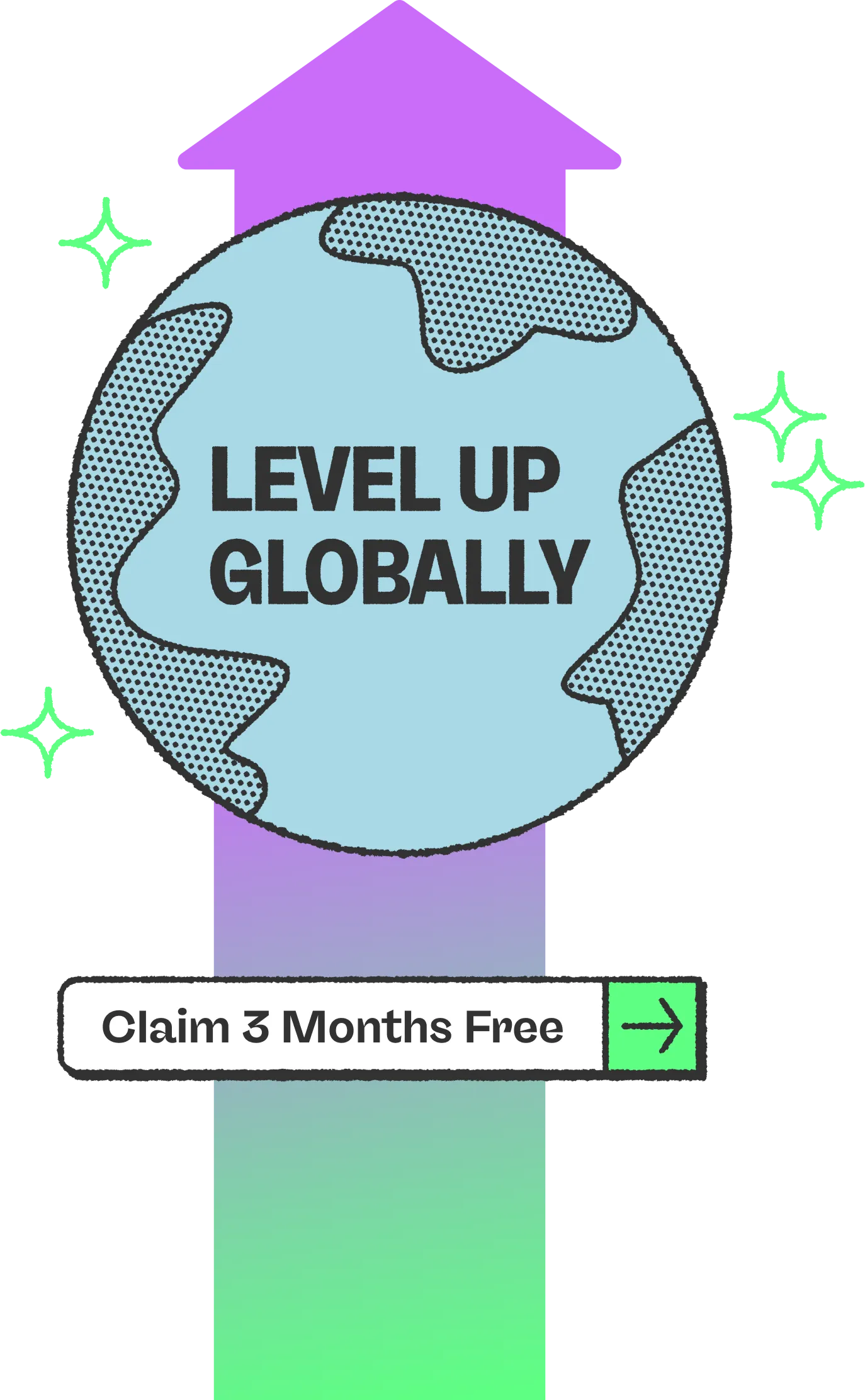As the AI revolution continues to reshape the workforce, a new generation is stepping into the fray: Gen Z. Born between the late 1990s and early 2010s, this group is not only the most digitally native cohort to date but also the first to begin their careers in an era where generative AI is already mainstream.
So, does that mean they’re the lucky ones? Or unlucky ones?
We consulted our AI in HR experts, and the answer isn’t so simple. There are opportunities and challenges. However, understanding how Gen Z is experiencing this moment can help HR leaders align their strategies to support and engage this new generation of talent—and that’s what we aim to do today.
How Gen Z approaches AI differently
Unlike previous generations who had to adapt to digital tools later in their careers, Gen Z has grown up with them. From smartphones to social media to early AI integrations like voice assistants and content algorithms, tech is second nature.
But what makes Gen Z particularly unique is their early exposure to generative AI tools like ChatGPT, DALL-E, and Claude—platforms that have rapidly changed how we create, learn, and solve problems.
According to a 2025 Deloitte survey, 57% of Gen Z professionals already use generative AI at work—higher than any other generation surveyed. They’re leveraging it for data analysis, creative work, and content creation, and even tasks like project management.
Gemma Taylor, Senior Learning Manager at Oyster, shared this insight:
“Gen Z workers are natives in this technology. But for the rest of us who aren’t, the challenge will be: How do we make sure that the Gen Z workforce is empowered to forge ahead instead of waiting for permission or decisions from people who aren’t there yet? In the learning and development space, our job will be to facilitate and offer guardrails and resources so Gen Z can be effective and productive as AI-native professionals.”
Pragmatic, but not uncritical
Because Gen Z has grown up alongside the AI revolution, they’ve heard the cautionary tales—misinformation, bias, job displacements! This, understandably, makes them worry. In the same Deloitte survey, 63% of Gen Z professionals worry that AI will eliminate jobs and 61% fear it will make it harder for younger generations to enter the workforce as it automates tasks typically performed by entry-level workers.
Entry-level work in the age of AI
Are entry-level jobs disappearing?
Is there weight to Gen Z’s worries? Historically, early-career roles have often been built around repetitive tasks: data entry, scheduling, summarizing reports, compiling research. Are these functions now being fully absorbed by AI?
While not every company is using AI to reshape entry-level roles, many are—and the data is starting to reflect it. New research from Stanford, using ADP payroll data, shows that AI-driven displacement is already affecting early-career jobs, with the sharpest declines in fields like software development and customer support.
We asked Adam DeRose, a tech journalist at HR Brew, for his perspective on the issue, and here’s what he shared:
“Gen Z workers are some of the most digitally savvy in the workplace and continually showcase comfort with emerging technologies and AI, both in their personal and work life. They're also, unfortunately, in some of the roles most exposed for AI displacement. The scenario spurs unease and anxiety about job security or career pathway, and surveying echoes this sentiment. The challenging labor market is roughing up post-grads more intensely than the broader workforce, that's true. But some organizations are looking to harness this cohort's tech savvy and excitement, engaging and consulting with Gen Z employees about AI use cases and tools that would impact the workflow. Others are strategically skilling early-career employees in new ways that complement AI.”
A shift toward skill-first hiring
As roles evolve, so too do the qualifications needed to succeed in them. Increasingly, employers are emphasizing skills over credentials—particularly digital and AI-related skills like prompt engineering, data literacy, and automation logic.
Supporting Gen Z in an AI-driven workplace
One way to support Gen Z—and honestly, most workers—in navigating this rapidly changing landscape is investing in training and organizational support. Many employees believe that we’re not running into a skills gap, but rather a training gap.
In this McKinsey report, nearly half of employees in the survey say they want more formal training or upskilling opportunities and believe it is the best way to boost AI adoption. This not only helps them drive more value at their current company, but also sets them up for the next step in their career.
Here’s what Gemma Taylor, Senior Learning Manager at Oyster, shared on the subject of training for AI skills:
“One challenge with upskilling for AI is that training isn’t always the best solution. Learning needs trial and error. It needs to be an individualized journey. What we can do is offer structured approaches to trying things and a safe space to make mistakes. But the real learning happens through experimentation, trial and error, mentoring, and on-the-job learning.”
Additionally, adjusting company culture is essential to lowering the psychological barriers around adopting AI. Encourage experimentation, organize innovation competitions, and create safe spaces for trial and error. Publishing AI ethics and transparency guidelines can also help build trust and reduce fear around misuse. Leaders should actively model AI use in their own workflows to normalize adoption and signal that learning is ongoing—not expected to be perfect from the start. Over time, this cultural reinforcement can shift AI from feeling like a threat to becoming a trusted tool.
Opportunities and challenges
The opportunity: Creativity at scale
Gen Z’s comfort with experimentation and digital tools makes them natural adopters of AI. They’re using technology to brainstorm faster, create more efficiently, and build projects with unprecedented speed. Whether launching a startup, streamlining freelance work, or enhancing team deliverables, Gen Z is well-positioned to thrive in a world where AI multiplies individual capacity.
The challenge: Career fog and foundational gaps
But that same rapid change presents a challenge. As job roles evolve in real time, many Gen Z workers are unsure what careers will look like in five years—or which skills to prioritize now. This career ambiguity, or “career fog,” is amplified by anxieties about being replaced or left behind.
Being tech-savvy isn’t the same as being work-ready. With the career ladder less clear, mentorship, guidance, and clear development opportunities will help engage and retain this wave of new talent.
A generation that’s shaping the future of work
Gen Z is not merely adapting to the AI era. They’re helping define it. Their expectations, behaviors, and ambitions are already influencing how companies build teams, design roles, and deliver learning. For HR leaders, this means:
- Embracing skill-based hiring over traditional credentialing
- Building continuous learning pathways focused on AI fluency and ethics
- Supporting experimentation and agency among young professionals
As AI continues to evolve, we all must adapt. That’s the future of work.
This article belongs to a three-part series on AI in HR. Previously, we covered how AI is causing tension in the workplace and how AI is changing talent acquisition.
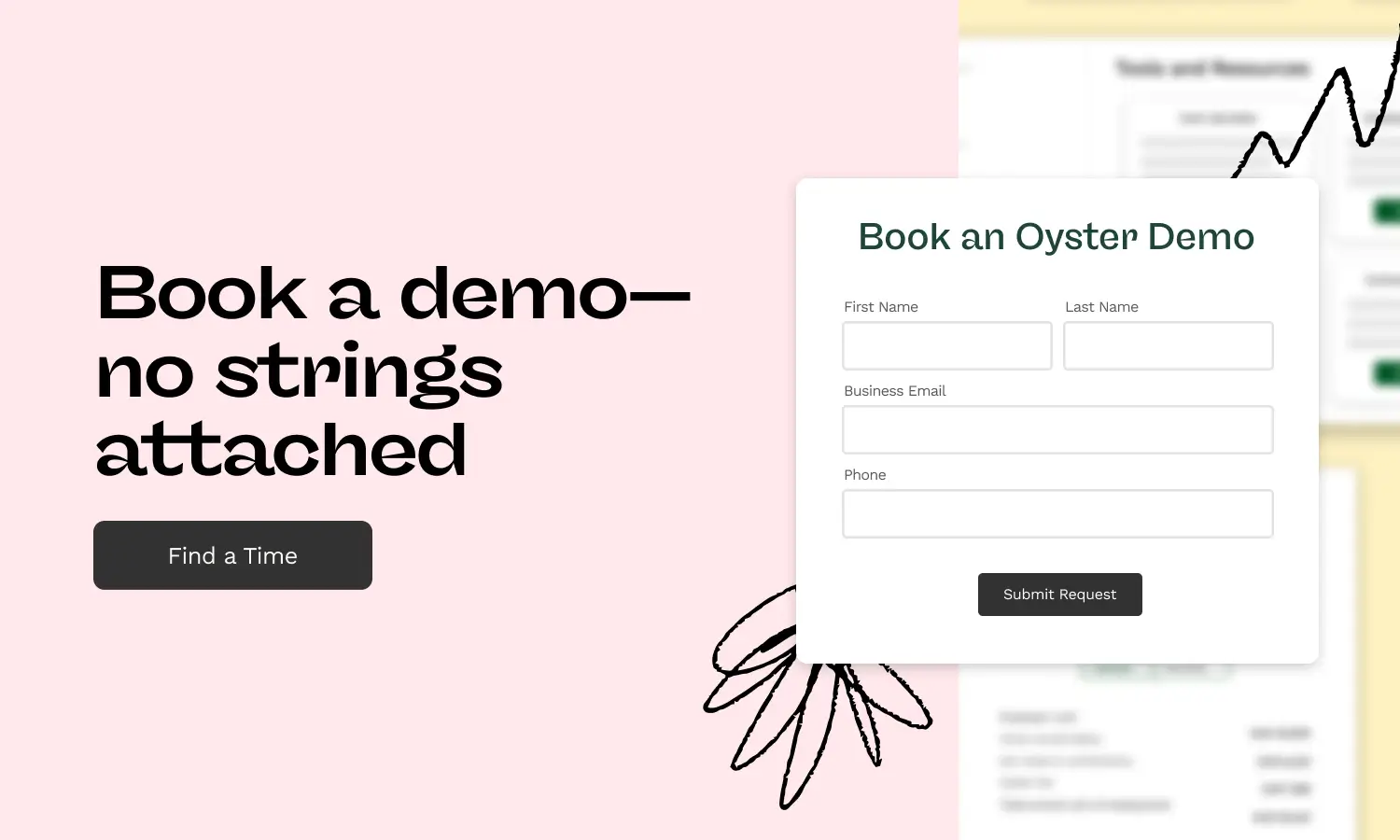
About Oyster
Oyster is a global employment platform designed to enable visionary HR leaders to find, engage, pay, manage, develop, and take care of a thriving distributed workforce. Oyster lets growing companies give valued international team members the experience they deserve, without the usual headaches and expense.
Oyster enables hiring anywhere in the world—with reliable, compliant payroll, and great local benefits and perks.
